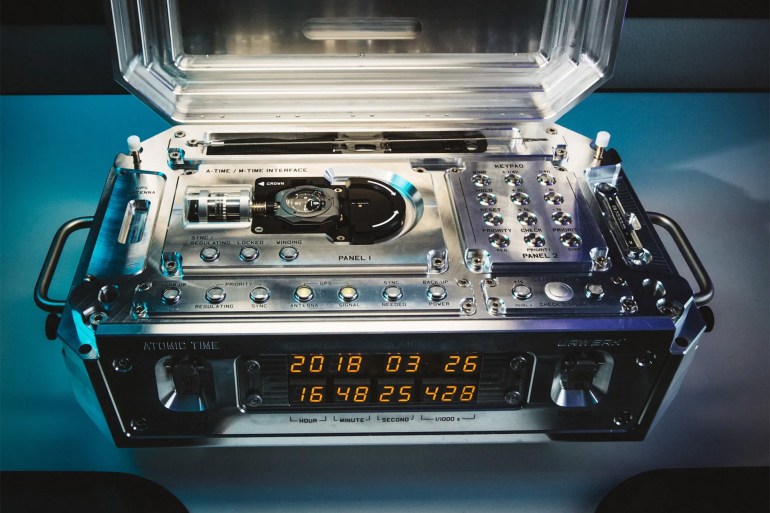If you feel that the past year has passed in a jiffy;
Atomic clocks, which are the most accurate ever in calculating time, confirm this, as 2021 passed faster than previous years.
The “atomic clock” is a clock invented by the American scientist William Libby in 1948, which relies on the atomic resonance frequency to set the time and is used to calibrate the second.
Where the amount of error reaches a second approximately every 30 million years, according to modern statistics, which made it a standard for world time, according to Wikipedia.
And writer Ed Brownie says - in a report published by the American magazine "Newsweek" - that New Year's Eve is often a time to think about the previous 12 months, and people may be divided between those who see that time has passed quickly without feeling it, and those who say that Days and hours were crawling at the speed of a tortoise.
But according to experts at the Time in Diet company, which specializes in determining the time and date in the world;
2021, from an abstract scientific point of view, was actually shorter than average, but this difference cannot be noticed by ordinary humans.
The "atomic clock" invented by the American scientist William Libby in 1948 (O'Rourke)
shorter year
And the writer quotes Graham Jones, a scientist from the "Time in Diet" company, that last year (2021) was shorter than the average by 65 milliseconds (one thousandth of a second), and thus is the shortest year in records.
The author explains that this change is caused by the speed of the Earth's rotation.
A small change in how fast this spins can make the day shorter than the usual time of day, which is 86,400 seconds.
"If you look at the length of the day, across the whole year, you can see some fluctuations from time to time," Graham says.
This effect is considered relatively short-term, according to Graham, but there are also other factors such as the movement of water in the oceans of our planet, and the internal movement of the Earth, which is believed to have a long-term effect, but until now scientists do not fully understand this effect.
Thus, it is difficult to make accurate predictions about the speed of the Earth's rotation for more than 6 months to come.
In general, scientists believe that the Earth has been slowing down for a long time, which made the years gradually become longer.
This conclusion was reached by geological records and astronomical observations of solar eclipses.
Atomic clocks are considered the most accurate timing clocks to date, with an error amount of one second every 30 million years (O'Rourke)
Earth acceleration
Graham adds, "What was interesting over the past year is that we saw that the Earth experienced something like a sudden increase in speed during this year. This acceleration slowed down, but the Earth, for a whole year, maintained this speed, which made this year shorter. Scientists expect The new year 2022 will be shorter than the past, but it is difficult for them to make accurate calculations or confirm that."
Today's atomic clocks can accurately measure our understanding of basic physics, and easily provide time measurement with an accuracy of 1 billionth of a second for GPS mapping systems.
In order to take advantage of it in driving cars on the roads, for example.

